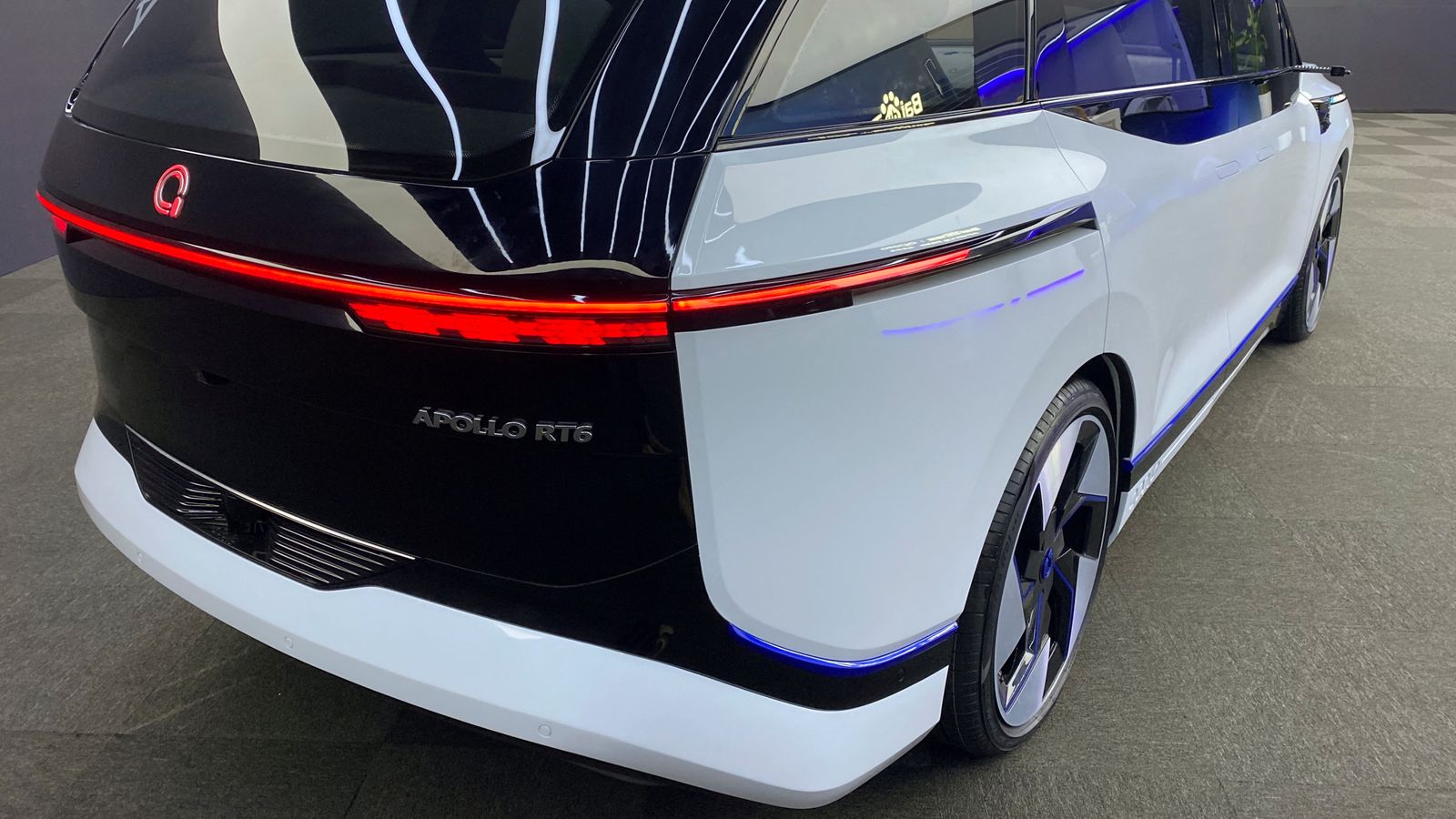Chinese search engine giant and artificial intelligence firm Baidu has unveiled its new autonomous vehicle which has a detachable steering wheel – with plans for it be used in its robotaxi service next year.
The Apollo RT6 will hit the roads without a steering wheel once Chinese authorities approve it, Baidu’s senior vice president Li Zhenyu said at a conference.
He added that the driving capability of the autonomous vehicle can match a skilled human driver with over 20 years experience.
The fully electric vehicle will cost 250,000 yuan (£31,000) per unit compared with 480,000 yuan (£59,000) for the previous generation.
“This massive cost reduction will enable us to deploy tens of thousands of autonomous vehicles (AVs) across China,” Baidu’s chief executive Robin Li said at the Baidu World 2022 technology conference.
“We are moving towards a future where taking a robotaxi will be half the cost of taking a taxi today.”
The new vehicle will possess autonomous “Level 4 capabilities” that need no human intervention, with 8 lidars and 12 cameras alongside the car.
GCHQ experts set out how to tackle online child sexual abuse despite end-to-end encryption
Meteoroid hit has caused ‘significant uncorrectable’ damage to James Webb Space Telescope
UK and US launch prize challenges to develop democratic tech innovations
Lidars are detection systems, similar to radars, which use pulsed laser light rather than radio waves.
The company did not disclose the manufacturer for the new model.
Baidu already runs Apollo Go, an autonomous ride-hailing service using self-driving robotaxis with safety staff seated in the driver or passenger seat.
The service has operated over one million journeys across 10 Chinese cities since its launch in 2020.
Baidu said in April that it had received permits to deploy robotaxis without humans in the driving seat on open roads in Beijing.
China aspires to lead autonomous driving technology globally but lags the US in introducing such services.
Read more:
Driverless car starts to pull away after being stopped by police
Companies not the users should be responsible if autonomous vehicles crash, watchdog proposes
Ocado and Virgin chiefs urge Johnson to put driverless cars in fast lane
Alphabet’s Waymo began offering driverless taxi services in Phoenix, Arizona in 2020.
The company has said it plans to roll-out its fully autonomous vehicles in the US in the coming years.
Tesla’s chief executive Elon Musk said in a conference with investors in April that the company aims to start mass production of its robotaxi without a steering wheel or pedals in 2024, and predicted that a robotaxi ride will cost less than a bus ticket.









